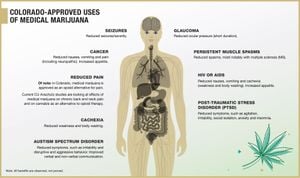China is facing significant economic and demographic challenges as it grapples with declining birth rates, changing societal norms, and government interventions aimed at boosting marriage and childbirth. Amidst these shifts, unconventional strategies have emerged from local authorities, chasing the elusive goal of increasing the country’s population.
Recently, the Chinese State Council laid out sweeping measures to create what they call a “birth-friendly society.” On October 28, 2024, 13 different initiatives were announced—all focused on alleviating the financial burdens of raising children and improving overall childbirth support. Local governments have jumped on this bandwagon, responding to the national call with various implementation strategies, which have not gone unnoticed by the public.
One of the more bizarre actions came from Lüliang City, which declared it would launch cash incentives starting January 1, 2025. Couples who register their marriage locally can earn 1,500 RMB (around 209 USD) as long as the bride is under 35 years old. If they go on to have children, the financial rewards continue—2,000 RMB for the first child, followed by 5,000 RMB for the second, and 8,000 RMB for the third. Yet, responses have been mixed, with many skeptics questioning the relevance of the cash rewards.
Public sentiment is rife with disbelief. Many young people doubt whether the 1,500 RMB incentive will truly change attitudes toward marriage. A voice of nationality echoed this skepticism online, with quips like “Get married for 1,500 RMB, then divorce? Isn’t this the deal of the century?”
Despite being commonplace to incentivize childbirth, marriage bonuses remain unusual. Criticism of the age constraint reflects broader concerns about societal values. Netizens openly mocked the age limitation, sarcastically dubbing it as promoting the idea of women above 35 as less worthy of marriage.
Government outreach strategies, particularly those aimed at nudging women toward childbirth, have often landed flat. Just as ludicrous was the recent article published by the National Health Commission titled “The Four Benefits of Women Giving Birth.” This piece claimed hormonal changes during pregnancy could turn women smarter—only to be met with ridicule across social media.
“Sure, have ten kids, you’ll become Einstein,” remarked one netizen, highlighting the absurdity perceived behind such claims. The phrase “pregnancy brain,” often joked about for its framing of new mothers’ forgetfulness, was dismissed as largely psychological, raising eyebrows among both commentators and the general populace.
Such disconnect between policy and populace has led to backlash. Calling attention to unusual methods, reports have surfaced of intrusive measures, such as unsolicited phone calls encouraging women to have children. One woman from Jiangsu shared her unsettling experience on social media, where officials even questioned her personal life, asking about her last menstrual period. It wasn’t just her reproductive intentions they probed; they also linked her pet ownership to her capacity for parenthood.
“Having pets is not good for having kids,” read one response from authorities - another bizarre twist on the government’s approach to controlling childbirth.
The intensity of the state efforts is manifest, particularly considering the looming demographic crisis. For the first time in over sixty years, China recorded population decline—this was coupled with the dire prediction of plummeting fertility rates, which fell to approximately 1.0, second only to one other major global economy.
Marital trends paint even grimmer pictures. A staggering drop of 943,000 fewer marriages was reported for the first three-quarters of 2024 compared to previous years. Netizens even described themselves as “the last generation,” promising not to marry or reproduce.
Driving these sentiments are genuine concerns about the financial impacts of raising children, coupled with the potential career disruptions motherhood may bring. Many governmental solutions have targeted providing financial incentives, but the effectiveness of such measures is being challenged as the real factors driving decisions become clearer.
For example, proposals were put forward to enable couples to access credit, incentivizing marriage and childbirth via loans of up to 200,000 RMB but raising concerns about creating generational debt burdens.
The view of youth today cannot simply be reduced to economic restraints. Instead, there’s acknowledgment of personal desires and expectations for life free from societal constraints. The younger generation is challenging the notion of traditional family structures, with growing members unwilling to settle for the confines of marriage or parenting.
China’s National Health Commission is apparently well aware of the dissatisfaction brewing among the populace. They have initiated surveys targeting the root reasons behind the reluctance to procreate, with hopes of tailoring initiatives more precisely addressing the motivations of today’s youth rather than relying on mechanical incentives or broad moral appeals. At the heart of the issue is whether the state can effectively pivot its strategies from symptomatic solutions to those addressing underlying causes.
There’s something poignant about the humor wrapped up within skepticism—the sentiment reflects much more than criticism of certain policies; it carries the weight of generational frustration. With birth rates falling and overall societal attitudes shifting, the question will remain: Will policies shift to recognize these changing priorities or continue to grapple with the traditional frameworks they’ve long relied upon?



